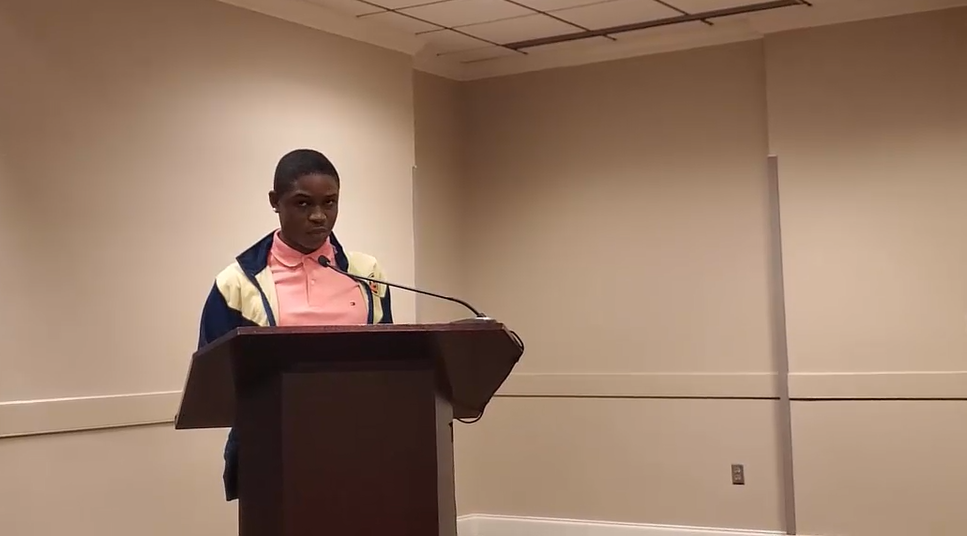
A bill that would simplify Florida’s education choice programs by merging five scholarships into two and add a flexible spending option cleared the Florida Senate Education Committee today.
By a vote of 6 to 4 along party lines, members approved SB48, which would transfer students receiving the Florida Tax Credit Scholarship Program (FTC) to the Family Empowerment Scholarship (FES), which was signed into law in 2019, and sunset the 20-year-old FTC.
The bill’s sponsor, Sen. Manny Diaz Jr., R-Hialeah Gardens, explained that the bill’s purpose is to consolidate programs and simplify the process for families, as well as give parents greater control over their children’s education.
“A lot of what is in this bill is in current law,” Diaz said.
Donors would still be allowed to contribute to the program through a newly created state trust fund. However, donations would go to serve K-12 education generally in the state, rather than pay for scholarships. Both the FTC and the FES are income based and serve students whose families meet financial eligibility rules.
The bill does not materially change the eligibility criteria for any of the scholarship programs, and actually reduces the currently allowable statutory growth in some of the programs.
The bill also would merge the McKay Scholarship Program for Students with Disabilities and the Gardiner Scholarship Program, creating a new program for students with unique abilities called the McKay-Gardiner Scholarship Program.
That program would allow families in all state scholarship programs to have flexible spending accounts, also known as education savings accounts, or ESAs. Currently, only students enrolled in the Gardiner program have such flexibility.
The accounts allow families to spend their money on pre-approved services and equipment in addition to private school tuition. Approved expenditures include electronic devices, curriculum, part-time tutoring programs, educational supplies, equipment, and therapies that insurance programs do not cover. The bill would expand eligible services for McKay-Gardiner students to include music, art, and theater programs, as well as summer education programs.
The scholarship programs are also available to homeschool students and those enrolled in eligible private schools.
In addition, victims of bullying at district schools who transfer to private schools as part of the Hope Scholarship Program would also be served by the Family Empowerment Scholarship Program and receive the same spending flexibility.
(See more details of the bill here.)
One student and five parents whose children have benefited from school choice scholarships spoke in support of the bill.
Lamisha Stephens, of Hallandale Beach, credited a scholarship with saving the life of her 16-year-old son, Marquavis Wilson, who was bullied so badly because of his sexual identity that in fifth grade he wanted to end his life. The transfer to a private school enabled him to escape the torment and thrive.
“That changed everything, she said. “Now, Marquavis is safe. And he can be himself. And he’s learning again like he’s supposed to.”
Marquavis also expressed his gratitude for the scholarship.
“At my old school, I was fighting all the time,” he said. “At my new school, everything was different,” he said. “I know they care about me. And I know I can be myself.”
Simone Arnold said her first-grade son, Ayden, who is on the autism spectrum and has trouble with his speech and comprehension, has made tremendous progress at his private school thanks to a Gardiner Scholarship.
“I want to thank Sen. Diaz for this bill that would benefit families by simplifying the scholarship programs, and by making them more flexible to meet each child’s individual needs,” Arnold said.
Also speaking in favor of the bill was Jon Arguello, a member of the Osceola County School Board, who said district schools do an outstanding job, but choice is necessary so that every student’s individualized needs can be met.
“As a policymaker I know this bill counts,” Arguello said. “As a father of five and a member of my community, I know this bill helps.”
He called education choice scholarships “a godsend” to parents and students with a need that cannot be met in a traditional environment.
“Public schools are not set up to address every single particular need of every student,” he said. “Every parent should be able to make the decision for their child whether we are serving them properly.”
After the meeting, Diaz thanked his colleagues who supported his efforts to help families.
“We look forward to our continued work streamlining Florida’s robust school choice options. Our aim is to make it easier for parents to navigate the process and assure that all students have the opportunity to access an educational option that works for them.”
The bill’s next stop is in the Senate Education Appropriations Subcommittee.


